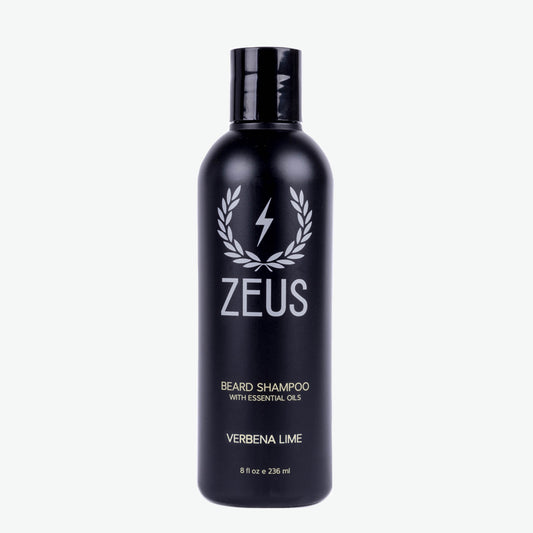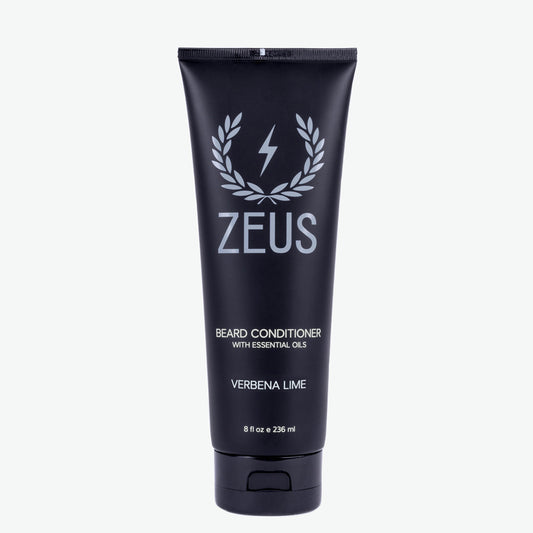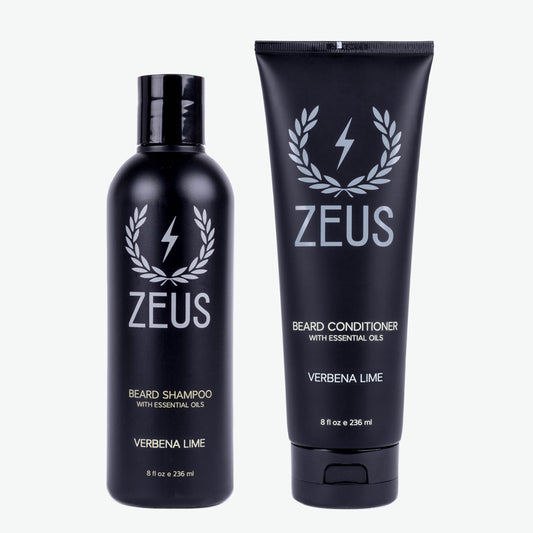However, treating sunburn should be your worst-case scenario. The best defense is a good offense, which means preventing burns before you expose yourself to the sun. Most people know sunscreen is a solid place to start, but you should also consider how long you stay in the sun and what you're wearing.
Here at Zeus Beard, we provided tips for when it's too late and red is your new skin color. However, we also included some prevention tips so your pale self can make better decisions next time!
When it's already too late, here's how to start treating sunburn...
Treating sunburn is made easy with aloe vera, which is considered to be the miracle plant. It can be applied in gel form or directly from the plant to soothe sunburned skin.
Aloe vera is especially known for its healing properties. Its enzymes increase blood flow and stimulate tissue repair. In addition, it contains antibacterial properties that fight off infection.
Lastly, it helps to naturally hydrate dry skin and restore its elasticity. This is important for treating sunburn because it avoids unsightly peeling during the healing process.
For instance, coconut oil contains properties that tighten skin and avoid wrinkles or long-lasting sun damage.
Moreover, it helps reduce bothersome itchiness and peeling from harsh sunburns.
To prevent yourself from burning next time, try these tips...

Keep reading to save yourself from looking like the neighborhood lobster! For tips, don't worry, Zeus has your back, but you'll have to find someone else to rub sunscreen on it!
1 Wear sunscreen and make sure to reapply every two hours!
Sunscreen should be your best friend this summer. After all, it offers one of your best defenses against skin cancer while you still get to enjoy the outdoors. When it comes to protecting your face or naturally light skin, choose a sunscreen with a 50+ SPF.
Even though tanner skin tones need less protection, that doesn't mean you should avoid sunscreen altogether. Choosing a product with a lower SPF still helps improve your tan while avoiding redness and discomfort when you go back indoors.
As a general rule, it is best to reapply sunscreen every two hours and give it about 20 to 30 minutes to soak into your skin. To avoid the greasy feeling on your lips that sunscreen can leave behind, opting for a chapstick that protects against UV exposure serves as an effective alternative.
2 Also reapply sunscreen after swimming or getting wet!
While the two-hour reapplication is usually a good rule of thumb, you also have to consider the outdoor activity you're participating in!
When it comes to water sports like swimming or diving, your body is immersed in the water meaning your sunscreen is washing right off.
Moreover, water activities like paddle boarding and kayaking that involve lots of splashing can easily take your sunscreen off, leaving burnt patches on your skin.
To avoid this, you don't have to avoid the water entirely. After all, getting to swim in the ocean or a pool is one of the best parts about summer. Just remember to throw on some more sunscreen once you dry off!
In addition, just because you can't see the sun through the clouds doesn't always mean the sun can't see you.
Also remember to wear sunscreen in overcast weather to safely avoid a sunburn.
3 Stay hydrated and eat foods rich in Omega-3 fats, Vitamin D and antioxidants!
While drinking extra water doesn't directly avoid sunburn, it does help retain your skin's moisture and keeps you feeling healthy despite high temperatures.
On the other hand, foods that are high in Omega-3 fats, Vitamin D and antioxidants directly help prevent sunburn symptoms. For instance, foods like eggs, walnuts and chia seeds are high in Omega-3 fats, which makes skin tissue healthier and reduces inflammation.
When it comes to Vitamin D, the sun offers a natural source. However, adding extra Vitamin D to your diet in the form of fatty fish and cheese actually counteracts the negative effects of the sun. When it comes to treating sunburn, studies show that Vitamin D reduces redness, inflammation and swelling.
Lastly, some studies show that foods high in antioxidants are even more effective at preventing sunburn than sunscreen, proving it doesn't just matter what you put on your body but also what you put in it. This means eating foods like strawberries, blueberries and even indulging with some dark chocolate.
Not only are these foods good at reducing sunburn, incorporating a balanced diet effectively inspires hair and beard growth.
4 Bring a tent or wear a hat!
We're here to tell you that tents aren't just for camping in the woods.
When heading to the beach this summer, do yourself a favor and bring a tent. Not only does this give you some privacy for your friends on the crowded sand, it also provides shade when you've had a bit too much sun.
This is also a great option for park picnics and backyard festivities.
Another factor you should consider when heading into sunny areas is what you are wearing.
Studies show that tightly woven, loose-fitting clothes work best to repel the sun. In addition, dark clothes absorb the most UV rays, providing a better defense against harsh sunlight.
When in doubt, always go with a hat and a pair of sunglasses. After all, your head and face are two of your most sensitive areas that need extra protection.
5 Limit midday time in the sun!
When planning your day, your skin should be one of your top priorities. That means knowing when the hottest parts of the day are. To stay safe, limit your time in the sun between the times of noon and 4 pm.
This doesn't mean you have to avoid outdoors during the best part of the day, it just means that you have to take extra precaution when the sun is at full mast.
Now that you have a list of tips and tricks, you are ready to take to the beach or the park this summer and come back with a golden tan, not a nasty burn.








